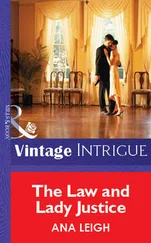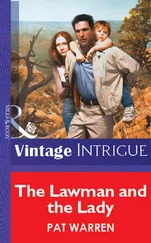Thomas Troward
The Law and the Word
Dieses ebook wurde erstellt bei

Inhaltsverzeichnis
Titel Thomas Troward The Law and the Word Dieses ebook wurde erstellt bei
CONTENTS CONTENTS The Law and the Word Author: Thomas Troward FOREWORD SOME FACTS IN NATURE SOME PSYCHIC EXPERIENCES MAN'S PLACE IN THE CREATIVE ORDER THE LAW OF WHOLENESS THE SOUL OF THE SUBJECT THE PROMISES DEATH AND IMMORTALITY TRANSFERRING THE BURDEN
FOREWORD
SOME FACTS IN NATURE
SOME PSYCHIC EXPERIENCES
MAN'S PLACE IN THE CREATIVE ORDER
THE LAW OF WHOLENESS
THE SOUL OF THE SUBJECT
THE PROMISES
DEATH AND IMMORTALITY
TRANSFERRING THE BURDEN
Impressum neobooks
The Law and the Word
Author: Thomas Troward
FOREWORD
SOME FACTS IN NATURE
SOME PSYCHIC EXPERIENCES
MAN'S PLACE IN THE CREATIVE ORDER
THE LAW OF WHOLENESS
THE SOUL OF THE SUBJECT
THE PROMISES
DEATH AND IMMORTALITY
TRANSFERRING THE BURDEN
THOMAS TROWARD
AN APPRECIATION
How is one to know a friend? Certainly not by the duration of
acquaintance. Neither can friendship be bought or sold by service
rendered. Nor can it be coined into acts of gallantry or phrases of
flattery. It has no part in the small change of courtesy. It is outside
all these, containing them all and superior to them all.
To some is given the great privilege of a day set apart to mark the
arrival of a total stranger panoplied with all the insignia of
friendship. He comes unannounced. He bears no letter of introduction. No
mutual friend can vouch for him. Suddenly and silently he steps
unexpectedly out of the shadow of material concern and spiritual
obscurity, into the radiance of intimate friendship, as a picture is
projected upon a lighted screen. But unlike the phantom picture he is an
instant reality that one's whole being immediately recognizes, and the
radiance of fellowship that pervades his word, thought and action holds
all the essence of long companionship.
Unfortunately there are too few of these bright messengers of God to be
met with in life's pilgrimage, but that Judge Troward was one of them
will never be doubted by the thousands who are now mourning his
departure from among us. Those whose closest touch with him has been the
reading of his books will mourn him as a friend only less than those who
listened to him on the platform. For no books ever written more clearly
expressed the author. The same simple lucidity and gentle humanity, the
same effort to discard complicated non-essentials, mark both the man and
his books.
Although the spirit of benign friendliness pervades his writings and
illuminated his public life, yet much of his capacity for friendship was
denied those who were not privileged to clasp hands with him and to sit
beside him in familiar confidence. Only in the intimacy of the fireside
did he wholly reveal his innate modesty and simplicity of character.
Here alone, glamoured with his radiating friendship, was shown the
wealth of his richly-stored mind equipped by nature and long training to
deal logically with the most profound and abstruse questions of life.
Here indeed was proof of his greatness, his unassuming superiority, his
humanity, his keen sense of honour, his wit and humour, his generosity
and all the characteristics of a rare gentleman, a kindly philosopher
and a true friend.
To Judge Troward was given the logician's power to strip a subject bare
of all superfluous and concealing verbiage, and to exhibit the gleaming
jewels of truth and reality in splendid simplicity. This supreme
quality, this ability to make the complex simple, the power to
subordinate the non-essential, gave to his conversation, to his
lectures, to his writings, and in no less degree to his personality, a
direct and charming naïveté that at once challenged attention and
compelled confidence and affection.
His sincerity was beyond question. However much one might differ from
him in opinion, at least one never doubted his profound faith and
complete devotion to truth. His guileless nature was beyond ungenerous
suspicions and selfish ambitions. He walked calmly upon his way wrapped
in the majesty of his great thoughts, oblivious to the vexations of the
world's cynicism. Charity and reverence for the indwelling spirit marked
all his human relations. Tolerance of the opinions of others,
benevolence and tenderness dwelt in his every word and act. Yet his
careful consideration of others did not paralyze the strength of his
firm will or his power to strike hard blows at wrong and error. The
search for truth, to which his life was devoted, was to him a holy
quest. That he could and would lay a lance in defence of his opinions is
evidenced in his writings, and has many times been demonstrated to the
discomfiture of assailing critics. But his urbanity was a part of
himself and never departed from him.
Not to destroy but to create was his part in the world. In developing
his philosophy he built upon the foundation of his predecessors. No good
and true stone to be found among the ruins of the past, but was
carefully worked into his superstructure of modern thought, radiant with
spirituality, to the building of which the enthusiasm of his life was
devoted.
To one who has studied Judge Troward, and grasped the significance of
his theory of the "Universal Sub-conscious Mind," and who also has
attained to an appreciation of Henri Bergson's theory of a "Universal
Livingness," superior to and outside the material Universe, there must
appear a distinct correlation of ideas. That intricate and ponderously
irrefutable argument that Bergson has so patiently built up by deep
scientific research and unsurpassed profundity of thought and
crystal-clear reason, that leads to the substantial conclusion that man
has leapt the barrier of materiality only by the urge of some external
pressure superior to himself, but which, by reason of infinite effort,
he alone of all terrestrial beings has succeeded in utilizing in a
superior manner and to his advantage: this well-rounded and exhaustively
demonstrated argument in favour of a super-livingness in the universe,
which finds its highest terrestrial expression in man, appears to be the
scientific demonstration of Judge Troward's basic principle of the
"Universal Sub-conscious Mind." This universal and infinite
God-consciousness which Judge Troward postulates as man's
sub-consciousness, and from which man was created and is maintained,
and of which all physical, mental and spiritual manifestation is a form
of expression, appears to be a corollary of Bergson's demonstrated
"Universal Livingness." What Bergson has so brilliantly proven by
patient and exhaustive processes of science, Judge Troward arrived at by
intuition, and postulated as the basis of his argument, which he
proceeded to develop by deductive reasoning.
The writer was struck by the apparent parallelism of these two
distinctly dissimilar philosophies, and mentioned the discovery to Judge
Troward who naturally expressed a wish to read Bergson, with whose
Читать дальше













